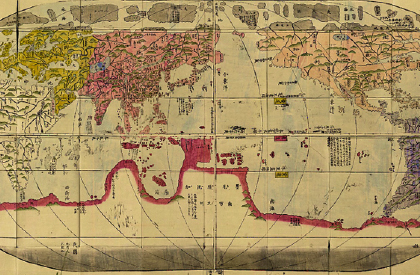Empires and Migrations in the Pacific World

- Module Coordinator:
- Dr Peter Hamilton
- Duration:
- All year
- Contact Hours:
- 2 hours per fortnight
- Weighting:
- 10 ECTS
- Assessment:
- 100% coursework
Chinese and Japanese merchants and later European empires were able to build segmented corridors during the early modern era, but mass migration awaited the California Gold Rush. Yet, then the prospect of mass Chinese migration elicited racialized hysteria throughout the Pacific basin’s white settler nations. Their imposition of barriers against ordinary Chinese and later all Asian migrants engendered contemporary systems of policing state boundaries and re-divided the Pacific into contending spheres of state power, economic penetration, and racial imagining.
As a result, historians long wrote fragmented histories of the Pacific. By dividing East Asian, Southeast Asian, North American, and Latin American histories, scholars broke the Pacific into more manageable but bounded pieces. Their approach marginalized transpacific movement and the state systems that transected this region from global history. By contrast, this course reframes the Pacific as the central fulcrum in the making of the modern world. Together, we will explore and develop conceptual frameworks for thinking through a Pacific World. In that ambitious undertaking, we will read from traditionally disconnected historiographies, as well as the emerging field of Pacific World history. Our weekly endeavour will be to think holistically about different imperial and national formations and consider how shifting flows of state power have moulded human geographies. As a result, we will also tackle a diverse set of analytical approaches toward the study of mobility. From migration and labour histories to environmental history, this spread will point us toward additional avenues to refine this Pacific World framework.
Learning Outcomes:
On successful completion of this module students will be able to:
- Identify and critically discuss histories of transpacific mobility across shifting imperial- and nation-state formations.
- Analyse and re-interpret global history narratives through the concept of the Pacific World.
- Identify relevant English-language primary source materials available in libraries and online archives.
- Synthesise research findings and formulate well-supported arguments in presentations and written work.

